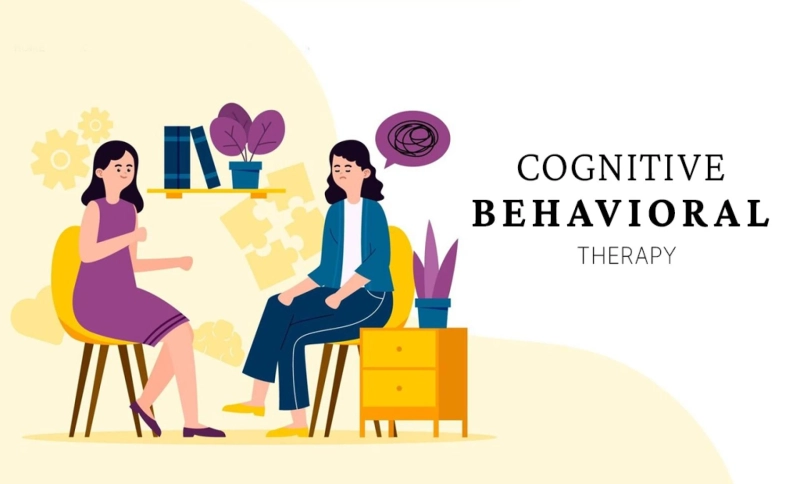Introduction
Cognitive Behavioral Therapy (CBT) has emerged as a powerful and versatile approach to mental health treatment. Rooted in the fundamental connection between thoughts, emotions, and behaviors, CBT has garnered widespread recognition for its effectiveness in addressing a wide range of psychological issues. This article delves into the numerous benefits of CBT, shedding light on how it empowers individuals to navigate the complexities of their inner worlds and create lasting positive change in their lives.
Understanding Cognitive Behavioral Therapy (CBT)
Before we explore its benefits, let's briefly revisit what CBT entails. At its core, Cognitive Behavioral Therapy is a form of psychotherapy that focuses on identifying and challenging distorted or negative thought patterns, beliefs, and behaviors that contribute to psychological distress and dysfunction. It operates on the belief that our perceptions of reality greatly influence our emotional responses and actions. By reshaping these perceptions, individuals can transform their emotional well-being and behavior.
Benefits of Cognitive Behavioral Therapy (CBT)
Efficacy Across a Spectrum of Conditions:
CBT's adaptability and evidence-based approach make it a first-line treatment for various mental health conditions. Its benefits extend to:
Depression: CBT helps individuals recognize and reframe negative thought patterns, reducing the severity of depressive symptoms and promoting recovery.
Anxiety Disorders: Whether it's generalized anxiety disorder (GAD), social anxiety, or panic disorder, CBT equips individuals with tools to manage anxiety, challenge irrational fears, and regain control.
Post-Traumatic Stress Disorder (PTSD): CBT, particularly trauma-focused CBT, is effective in helping individuals process traumatic experiences, reduce distressing symptoms, and regain a sense of safety.
Obsessive-Compulsive Disorder (OCD): Exposure and response prevention, a key component of CBT, helps individuals confront obsessions and compulsions, ultimately reducing their frequency and severity.
Eating Disorders: CBT addresses distorted body image, dysfunctional eating behaviors, and underlying emotional issues, facilitating recovery from conditions like bulimia nervosa and binge-eating disorder.
Empowers Self-Awareness and Emotional Regulation:
One of the primary benefits of CBT is its focus on self-awareness. Through introspection and guidance from a therapist, individuals learn to recognize their thought patterns and emotional responses. This heightened self-awareness enables them to:
Identify triggers and early warning signs of distress.Gain insight into the connection between thoughts, emotions, and behaviors.Develop strategies to manage and regulate their emotions effectively.Targeted and Goal-Oriented:
CBT is a structured and goal-oriented therapy. This means that therapy sessions have a clear focus, and both therapist and client work collaboratively to set specific, achievable goals. The benefits of this approach include:
A sense of purpose and direction in therapy.Tangible progress markers that provide motivation.Efficient use of therapy time, making it cost-effective for clients.Skill Building for Long-Term Well-Being:
Unlike some therapies that primarily delve into past experiences, CBT equips individuals with practical skills and strategies they can apply in their daily lives. These skills include:
Cognitive restructuring: Learning to challenge and reframe negative thoughts.Behavioral techniques: Implementing new, healthier behaviors and coping strategies.Stress management: Developing effective tools for handling everyday stressors.These skills become invaluable assets that extend beyond the therapy room, helping individuals maintain their mental well-being and navigate life's challenges more effectively.
Collaborative and Client-Centered:
CBT is a collaborative therapy that respects the client's autonomy. Therapists and clients work together to identify goals, develop strategies, and monitor progress. This collaborative aspect brings several benefits, including:
Empowerment and ownership of one's mental health journey.An individualized approach tailored to the client's unique needs and circumstances.A therapeutic alliance that fosters trust and openness.Time-Limited and Focused:
CBT is typically shorter in duration compared to some other forms of therapy. Sessions are designed to be time-limited and focused, which can be particularly advantageous for clients:
Seeking a more time-efficient treatment option.Navigating issues that require immediate attention.Managing busy schedules while receiving therapy.Reduction in Symptoms and Relapse Prevention:
One of the most significant benefits of CBT is its effectiveness in reducing the symptoms of various mental health conditions. Moreover, it equips individuals with the tools and strategies needed to:
Prevent relapse by recognizing early warning signs.Manage ongoing symptoms independently.Sustain progress and continue to thrive after therapy concludes.Holistic Approach to Well-Being:
CBT acknowledges the intricate interplay between thoughts, emotions, behaviors, and physical sensations. It encourages a holistic view of well-being, emphasizing the connection between mental and physical health. The benefits of this approach include:
Improved overall quality of life.Enhanced self-care practices that address both mental and physical health.Greater resilience in the face of adversity.Beyond the Benefits: Addressing Critiques and Challenges
While CBT offers numerous benefits, it is essential to acknowledge that it may not be the best fit for everyone, and it is not without critiques and challenges:
Not Universally Effective: CBT may not work equally well for all individuals or conditions. Some individuals may require different therapeutic approaches.
Intensive and Active Participation: Achieving the full benefits of CBT often requires active participation, including completing homework assignments and practicing new skills regularly.
Limited Access to Qualified Therapists: In some regions, access to qualified CBT therapists may be limited, potentially leaving individuals without this valuable resource.
Overemphasis on Cognitive Aspects: Critics argue that CBT may place too much emphasis on cognitive processes and may not sufficiently address underlying emotional or interpersonal issues.
Maintenance of Gains: Maintaining the gains achieved through CBT can be challenging, and individuals may experience relapses or setbacks.
CBT in the Digital Age: Accessibility and Innovation
In recent years, technology has played a significant role in expanding the reach of CBT. Online CBT programs, mobile applications, and virtual therapy sessions offer convenient and accessible ways for individuals to engage in self-guided CBT exercises and strategies. These digital tools not only increase accessibility but also promote self-help and mental health awareness.



